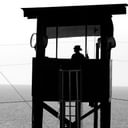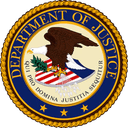Washington Post
Editorial
Friday, November 16, 2001; Page A46
After the attacks of Sept. 11, many predicted that the demands of domestic security would eventually clash with traditional American reverence for civil liberties. Few predicted that the clash would come so soon and so starkly, or that the government would come down so decisively on the anti-liberty side as would be permitted under President Bush’s new executive order on military justice. The order allows the president to order a trial in a military court for any non-citizen he designates, without a right of appeal to the courts or the protection of the Bill of Rights.
We understand the temptation to jettison civilian justice and the shields against excessive government power that this country has nurtured for more than two centuries. The United States is, as Attorney General John Ashcroft said, at war, and with an implacable foe. There are potential terrorists, likely living in this country, who would do Americans great harm if they could — greater even than what their brethren accomplished at the World Trade Center, the Pentagon and the field in Pennsylvania. We can imagine cases in which the government might take custody of such a person, too dangerous to be released or deported, against whom the evidence came from sources too sensitive to reveal in open court, or was insufficient to win conviction in a normal court. We can also imagine cases in which fighters captured overseas might best be tried in military courts. But the potential damage is so great, to U.S. credibility abroad as well as U.S. liberty at home, that such courts should be viewed as an absolutely last resort, particularly in domestic cases.
Instead, Mr. Bush has authorized military justice as an option for the government in a far wider array of cases than could ever be necessary. Any non-citizen whom the president deems to be a member of al Qaeda, or to be engaged in international terrorism of virtually any kind, or even to be harboring such people, can be detained indefinitely under his order and tried. The trials could take place using largely secret evidence. Depending solely on how the Defense Department further refines the rules, the military officers conducting the trials might insist on proof of guilt beyond a reasonable doubt, or might use some far lesser standard. The accused can be convicted without a unanimous verdict but with a two-thirds majority. Those found guilty would have no appeal to
any court; and if found guilty, they could be executed. Such a process is only a hair’s breadth from a policy of summary justice. The potential to imprison or execute many innocent people is large, the chances that such mistakes would become known much smaller. Mr. Bush is claiming for himself the authority to unilaterally exempt a class of people accused of particular crimes from the protections of the Constitution. In this as in other recent balancing acts between law enforcement and liberty — the roundup without accounting of more than 1,000 people, the authorization of government eavesdropping on conversations between imprisoned clients and their lawyers — it seems to us the president is not being well advised.
When Americans accused of terrorism are tried in secret courts by hooded judges in Peru or other nations, the U.S. government rightly objects. To authorize comparable trials in this country will erase any legitimacy of such objections. Worse, it will erode throughout the world the image of America as a place where certain freedoms cannot be compromised — freedoms that ultimately provide the most basic justification for this country to stake its claim to lead the world and wage the war on terrorism. And worse in turn than the blow to the U.S. image abroad will be the potentially irreversible injury at home if Mr. Bush proceeds, as his order would allow, to undermine the rule of law.


